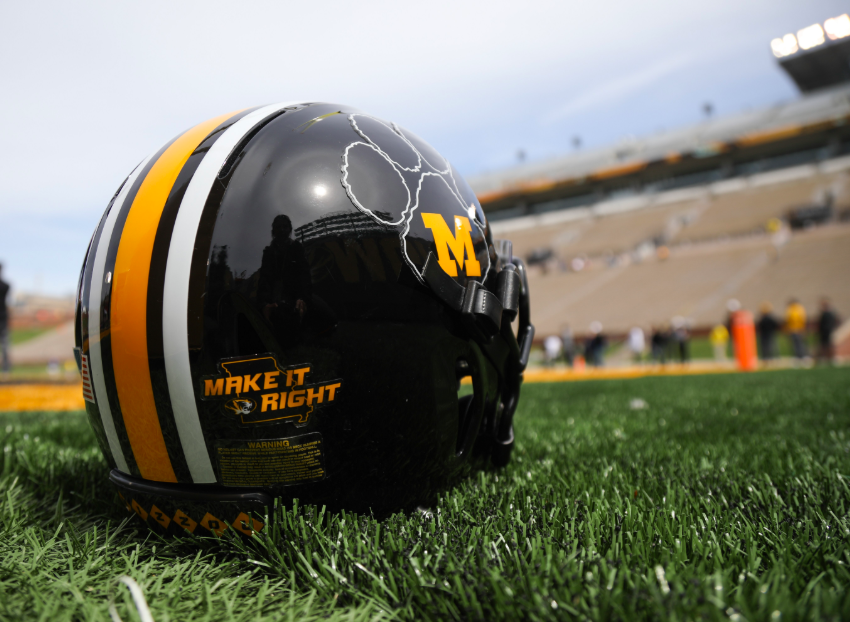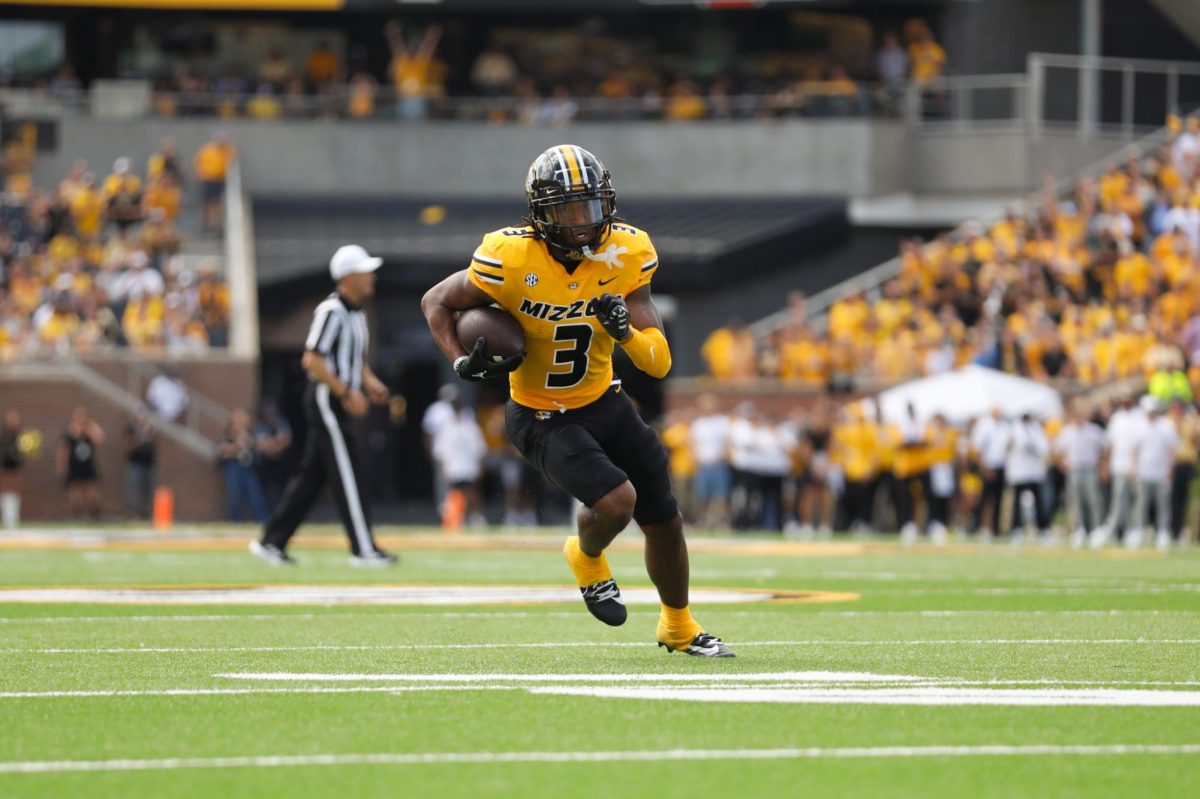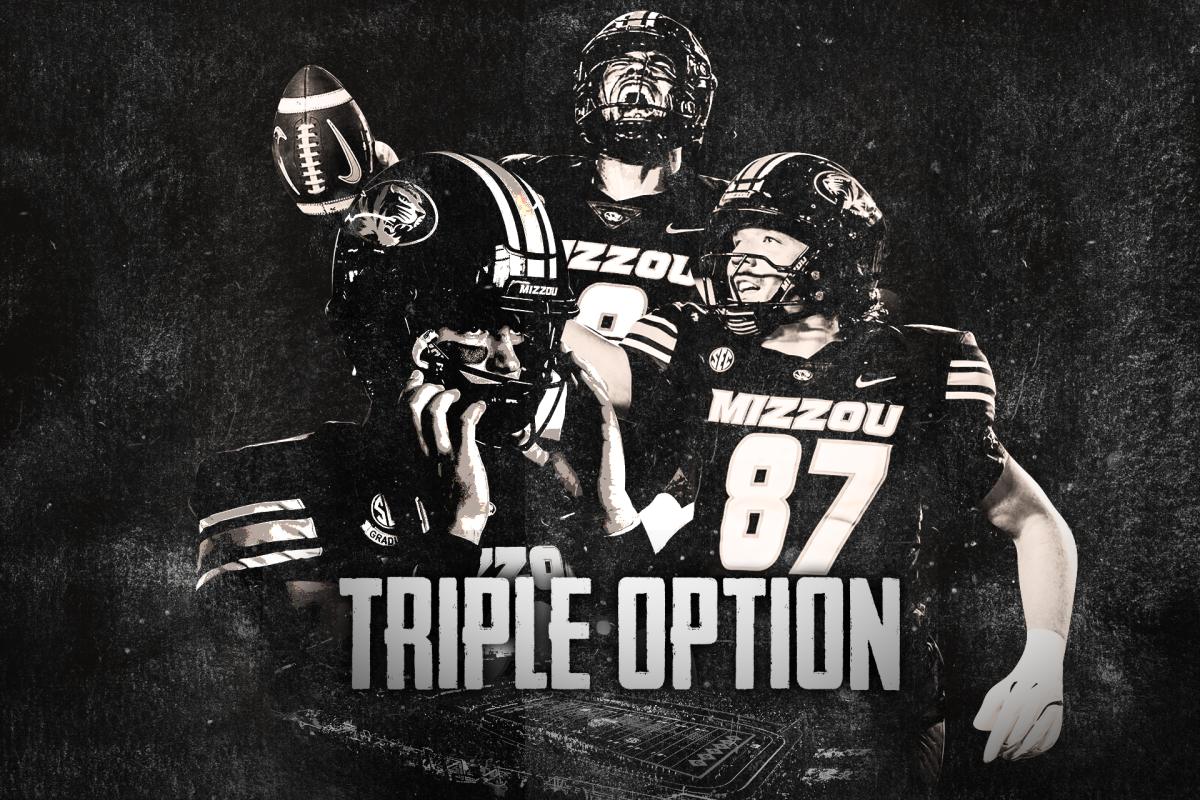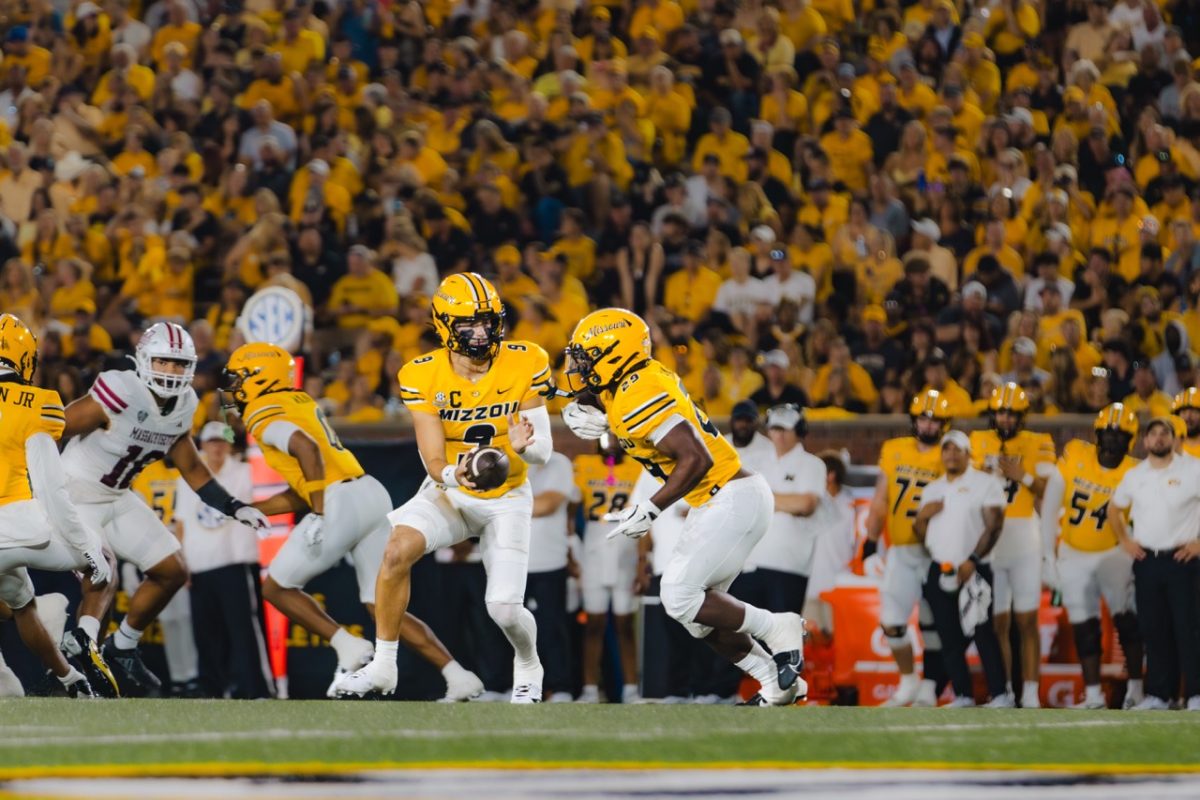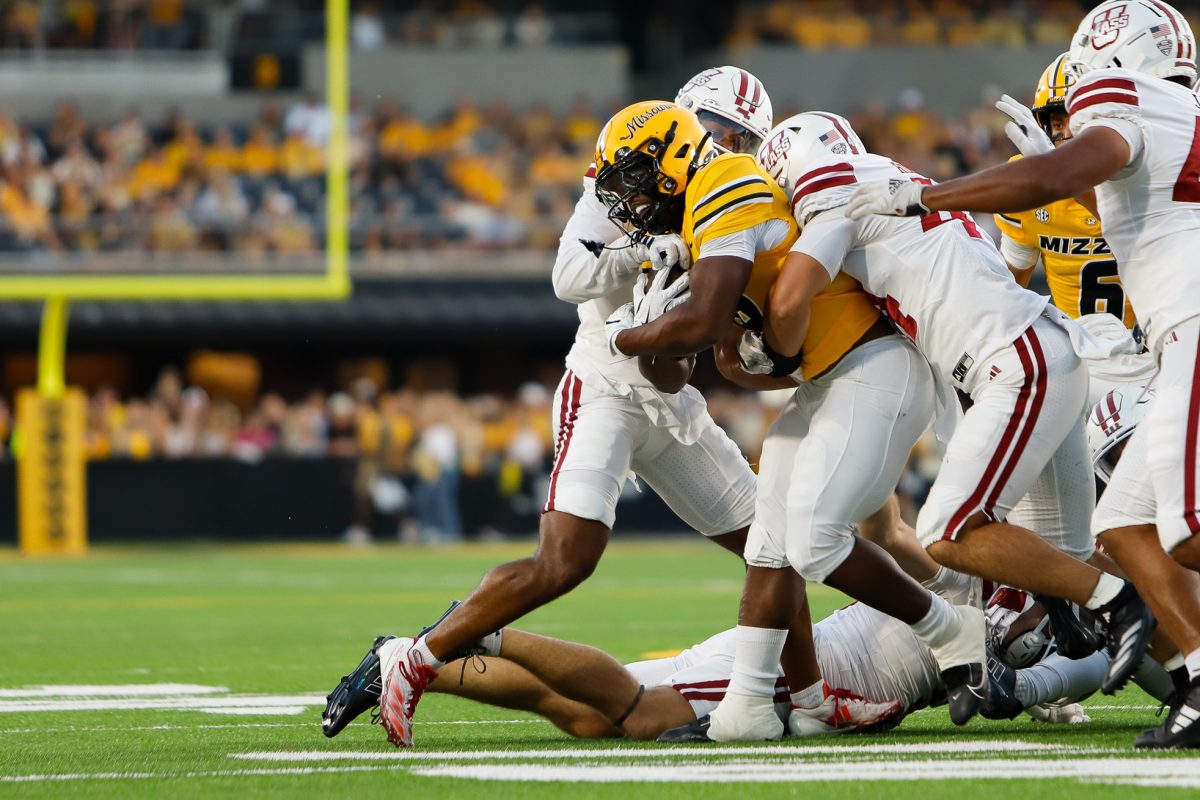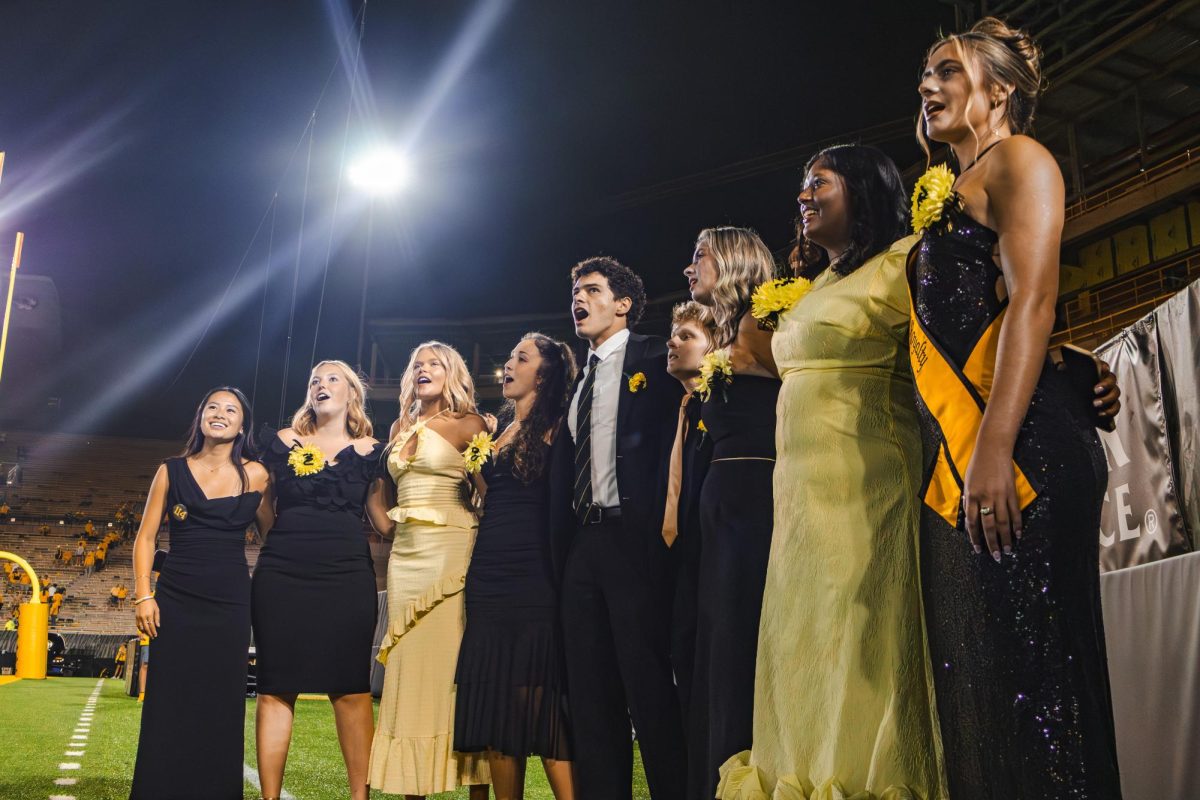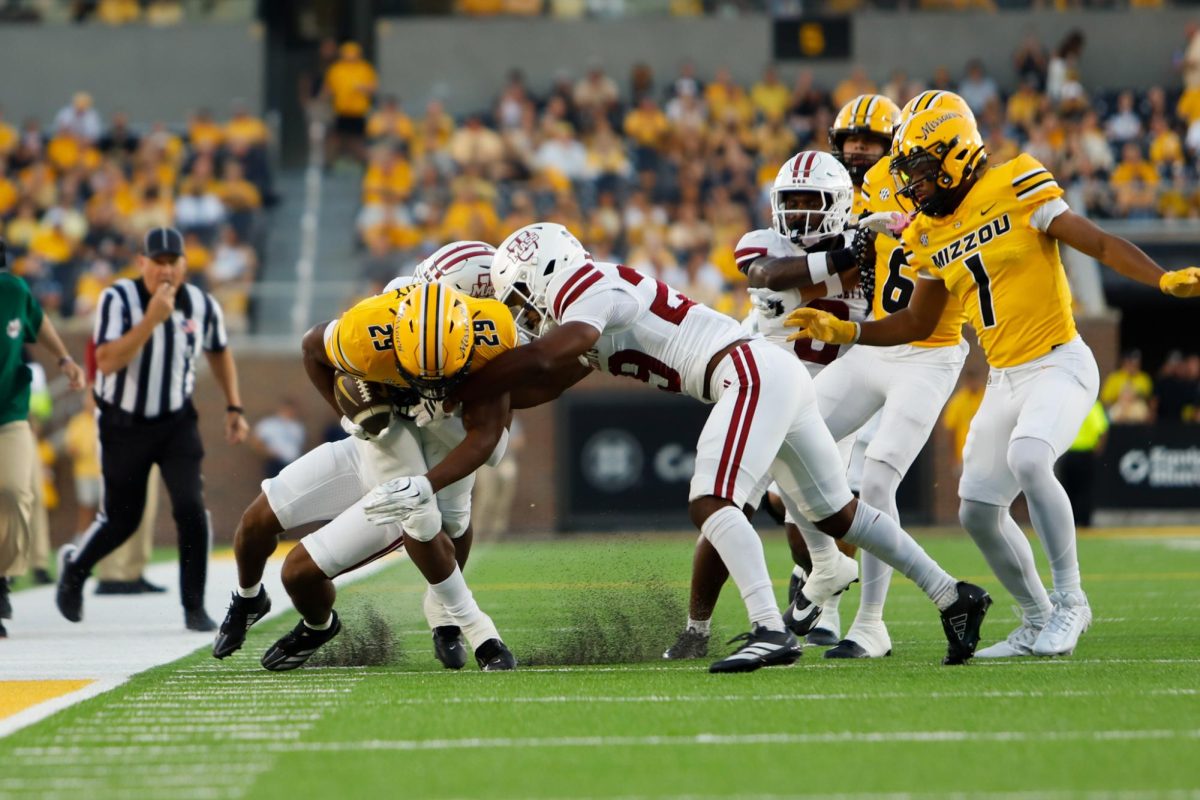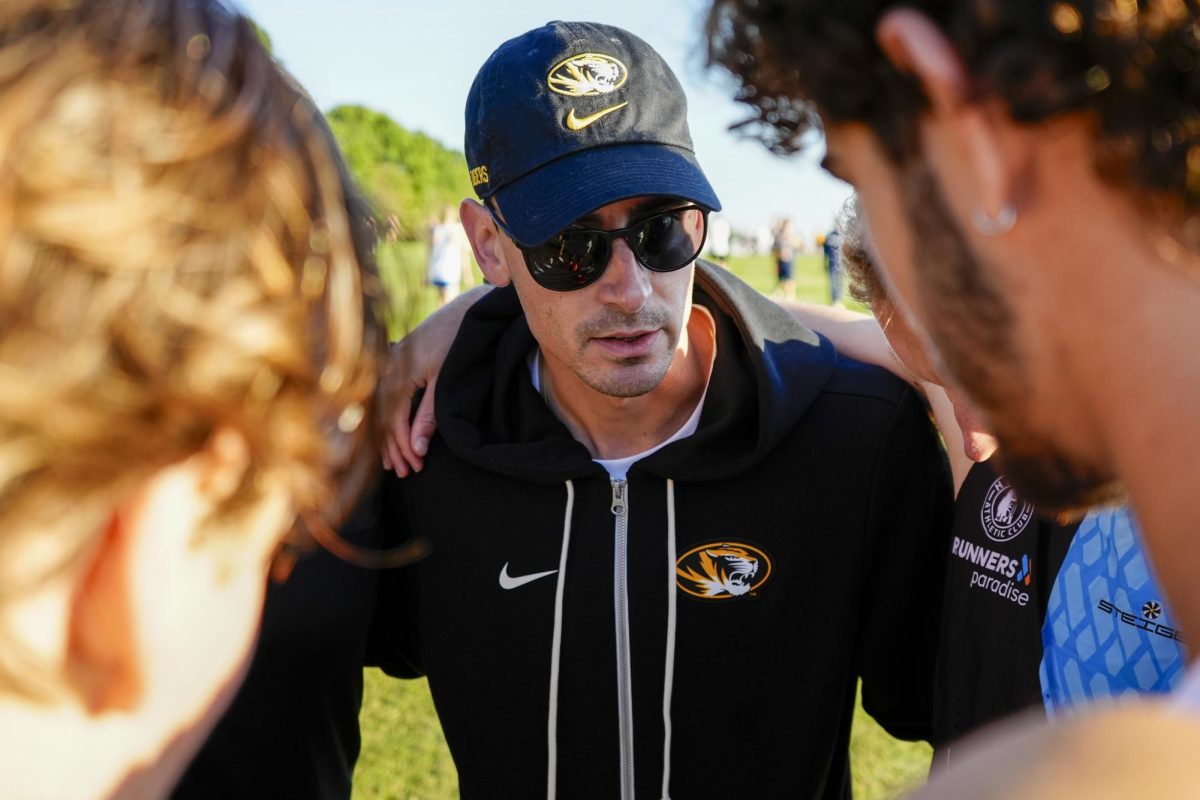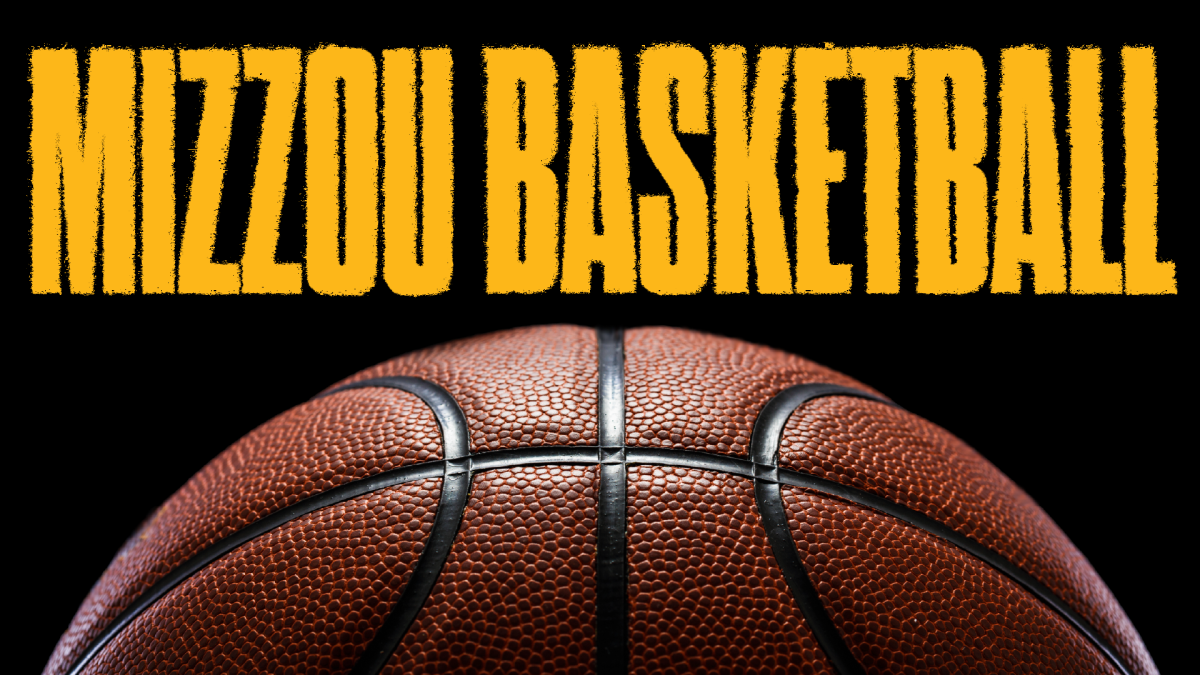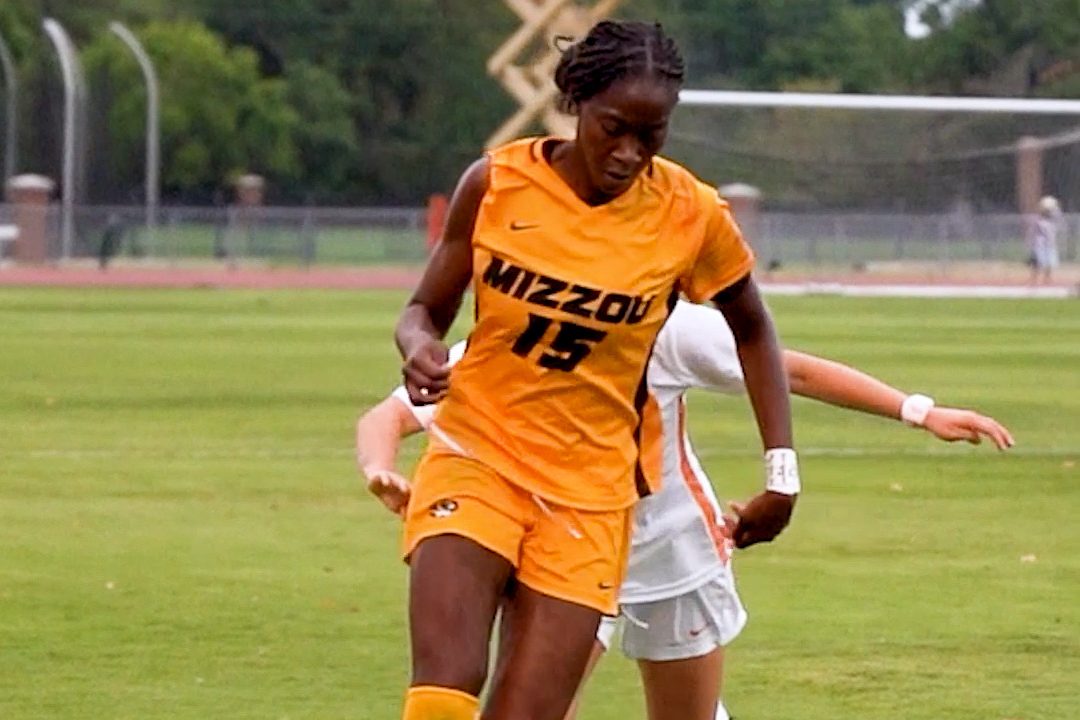There are a number of moments that could have defined Missouri’s 2018-2019 year in athletics.
Clemson graduate transfer Kelly Bryant announced his decision to transfer to MU on Dec. 4, 2018. The national championship quarterback chose Missouri over Auburn, North Carolina and Mississippi State.
Sophie Cunningham became the first Tiger to become a WNBA player when she was drafted No. 13 overall by the Phoenix Mercury after becoming the MU women’s basketball programs’ all-time leading scorer with 2,187 points.
The Missouri wrestling team had its fifth-consecutive top-10 finish — its ninth all-time — led by junior Jaydin Eierman, who announced he’ll take an Olympic redshirt season next winter.
The moment that will define the 2018-2019 MU year in athletics for years to come, however, was the NCAA handing down sanctions to the MU Department of Athletics including postseason bans for softball, baseball and football.
MU notified the NCAA of its decision to appeal the sanctions on Feb. 14, and the official 64-page written appeal was filed on March 25. A summary of Missouri’s appeal was released by the school, stating its three main arguments: “the penalties handed down were contrary to NCAA case precedent, they were not supported, or appropriate, given the nature of the violations, they could have a chilling effect on future NCAA enforcement processes.”
On April 25, the NCAA Division I Committee on Infractions gave a mandated response, to which MU was able to reply to up until May 9. An in-person hearing will occur this summer.
“Our staff and legal team have worked tirelessly to research and develop a well-written appeal that accurately reflects our position,” MU Director of Athletics Jim Sterk said in a press release. “We look forward to having an opportunity to meet face-to-face with the NCAA.”
That legal team is spearheaded by high-profile sports attorney Mike Glazier, who MU brought on as outside counsel just days after the announcement of the sanctions.
The sanctions were issued by a COI as a ruling on the 2016 case involving MU athletics tutor Yolanda Kumar and 12 student athletes. Kumar completed academic work for the student athletes, claiming she felt pressured by athletics staff to perform the academic misconduct. The COI’s investigation did not find this to be the case.
With the sanctions, Missouri football, which finished 8-5 in 2018 — its best record under coach Barry Odom — had any chance at a 2019 bowl game stripped away.
The same will go for MU softball and baseball in the spring of 2020: no SEC championships, no NCAA Tournament runs.
The list of sanctions includes a single-season postseason ban for each of the three sports. While the appeals process has protected baseball and softball from serving the ban in their 2019 seasons, football will most likely serve theirs come fall, depending on how long the appeals process extends.
Last season, MU football was led by Lee’s Summit native Drew Lock, who was drafted as the No. 41 pick overall in the second round of the 2019 NFL Draft by the Denver Broncos on April 26. Lock threw for 3,498 yards and 28 touchdowns in his senior season, leading Missouri to a fifth place finish in the SEC East with a conference record of 4-4. The Tigers broke into the AP Top-25 at No. 24 in the final week of rankings, its first appearance under Odom’s leadership.
The season was a promising one for the Tigers, which had a road victory over then-No.11 Florida. Selected for the Liberty Bowl in Memphis, Tennessee, Missouri lost 38-33 against Oklahoma State. It was MU’s closest bowl game since the 2010 Insight Bowl against Iowa, in which the Tigers lost 27-24.
In Odom’s first three years as coach, the Tigers finished 4-8, 7-6 and 8-5. After MU landed Bryant in December, Odom received a two-year contract extension that guarantees him $3.05 million through 2024. It’s a $6,000 pay raise for Odom, who was formerly the lowest paid coach in the SEC after finishing 4-8 and 7-6 in his first two seasons as coach.
Meanwhile, baseball and softball played their 2019 seasons with a “Make it Right” mentality.
“It is beyond me that the NCAA promotes the value of the student-athlete experience, while at the same time approving such damaging sanctions against an innocent group of them,” softball coach Larissa Anderson said in her statement. “I…will do absolutely whatever I can to fight for my players.”
In her first year at Missouri, Anderson managed to breathe new life into MU softball despite the circumstances. The Tigers finished the regular season 32-23 after a loss to No. 24 Auburn in the opening round of the SEC Tournament.
Anderson’s team was selected as the No. 2 seed in the Los Angeles Regional for the NCAA Tournament, its 13th-consecutive regional bid. In their series against UCLA, the Tigers handed the Bruins their sixth loss all season, rallying late to force a game seven. Missouri fell 13-1 in the final game, eliminating them from the tournament.
The Tigers finished their season with a 35-25 overall record, their best since 2016 when MU went 42-16 and appeared in the Super Regional round of the NCAA Women’s College World Series.
MU baseball saw similar success this season, finishing with a 34-22-1 record. The Tigers failed to make the NCAA Tournament, a feat they haven’t been able to accomplish since joining the SEC.
Steve Bieser has been the coach at Missouri since 2017, with conference records of 14-16 and 17-18 in his first two years in the SEC. While the Tigers have enjoyed regular season success under his leadership, they’ve endured postseason struggles.
In 2017, the Tigers had the longest win streak in college baseball at 20 games before it was ended with a 9-2 loss against Arkansas. Despite the streak and a win in the opening round of the SEC Tournament, Missouri couldn’t break into the NCAA Tournament. The Tigers last appeared in the tournament in 2012.
Last season, MU finished 34-22 after a loss in the SEC Tournament to South Carolina.
“From day one, our team has embodied the ‘Win it Right’ philosophy,” Bieser said in his statement. “I am confident that I speak for our players, alumni and staff in saying that we welcome the opportunity to fight these injustices. To fight for what is right. To fight for old Mizzou.”
Outside of the postseason ban, which won’t have any effect on MU athletics until December at the earliest, there are at least seven other sanctions that will take effect following the conclusion of the appeal should Missouri lose. These include a 5% reduction in scholarships for each of the teams, recruiting restrictions, three years of NCAA probation and a vacation of the wins participated in by student athletes involved in the case.
It’s not the first time MU has found itself in trouble with the NCAA. In 2015, the men’s basketball program self-imposed several penalties after a pair of boosters provided illegal inducements for a number of players. The NCAA also imposed a year of probation, which the program served during the 2016-2017 season.
_Edited by Leah Glasser | [email protected]_


